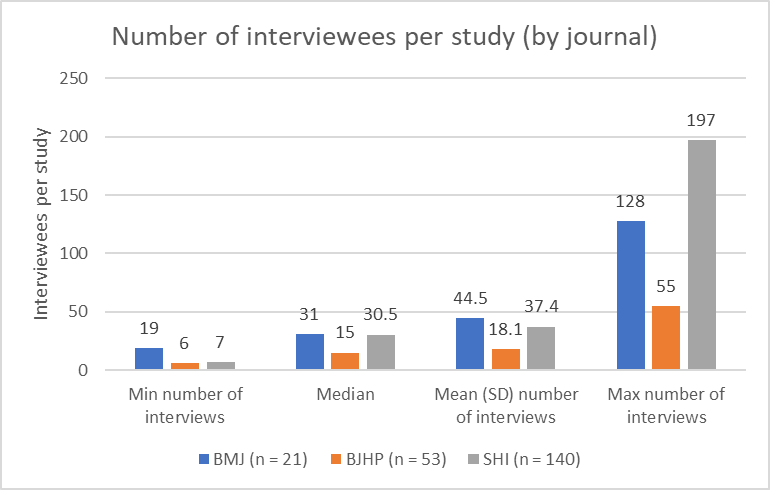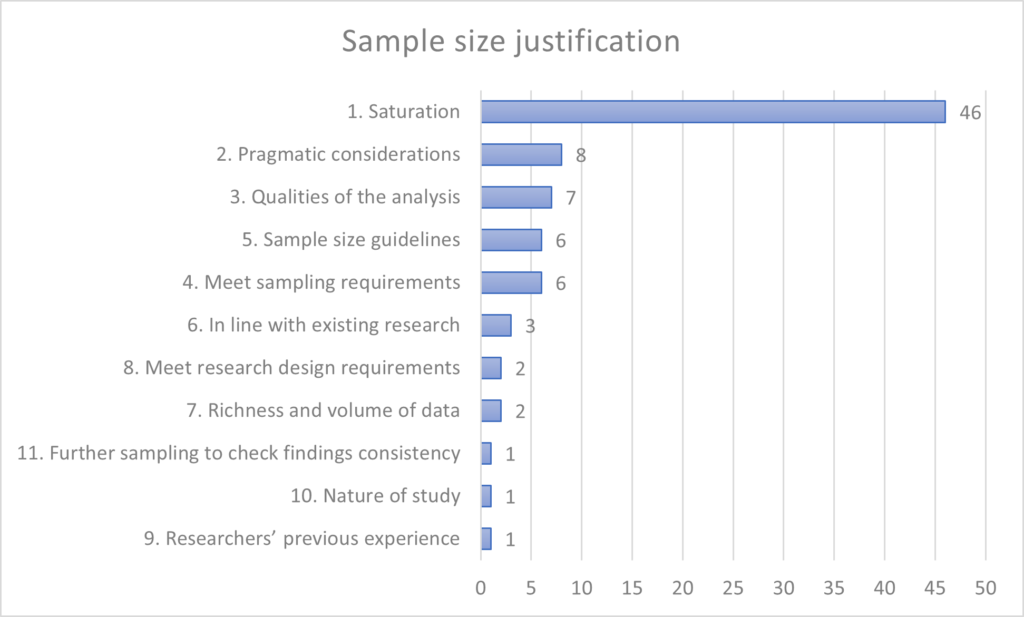The answer to this question, of course, depends on your specific research question. However, it is helpful to review what has been done in previous literature. A paper by Vasileiou et al. (2018) conducted a systematic literature review of all published studies using a single-interview-per-participant designs within three health-related journals: British Medical Journal (BMJ), British Journal of Health Psychology (BJHP), and Sociology of Health & Illness (SHI). Studies published in these 3 journals between January 2003 and September 2017 were evaluated.
Overall, the median number of interviews was 31 for BMJ, 15 for BJHP, and 30.5 for SHI. More information on the distribution of interviewees per study is shown in the graph below.

Overall, 72.0% of articles providing no justification for the sample size chosen. By journal, “just over 50% of articles in the BMJ and BJHP and 82% in the SHI did not provide any sample size justification.”
What rationale(s) did authors use to justify their sample size? Saturation was most common followed by pragmatic considerations.

More detail and examples of these justifications can be found if you read the full article here.






